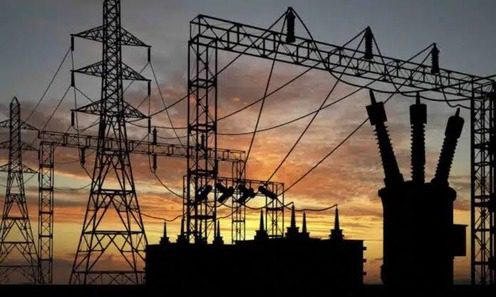The recent attacks on power infrastructure in Nigeria’s North East and North West, affecting 13 states, underscore that Boko Haram insurgents—or whatever they call themselves—still have the capacity to severely impact Nigeria’s economy. They must be crushed without any hesitation.
The rhetoric of “they have been decimated” must end.
Reports indicate that insurgents vandalized the Shiroro-Kaduna transmission line on October 21, 2024, bringing business activities across nearly an entire region to a halt.
Since then, Kaduna, Kano, Katsina, Kebbi, Sokoto, Jigawa, Adamawa, Bauchi, Borno, Gombe, Taraba, Yobe, and Zamfara have been plunged into total darkness.
Businesses are shut down, and the livelihoods of many residents are at risk.
In June 2024, a similar blackout occurred in Puerto Rico, a U.S. territory, where residents faced a power outage. Within 48 hours, local authorities declared an emergency.
Unfortunately, it took President Bola Tinubu over a week to respond to the dire situation in Northern Nigeria. In a digital age, light is indeed life.
Tinubu has since directed the Transmission Company of Nigeria (TCN) to expedite repairs.
He also instructed the National Security Adviser (NSA) to deploy security forces to protect workers on-site and safeguard power infrastructure from further attacks.
While the President’s response, though delayed, is commendable, his directives should go beyond restoring power and securing infrastructure.
As the Commander-in-Chief of the Armed Forces, he should also order the military to root out these terrorists from their hiding places.
Concerns over possible attacks on power facilities first arose in 2022, when it was reported that terrorists were establishing new strongholds in Niger State.
In March 2022, the National Union of Electricity Generation and Transmission Employees (NUEGTE) raised alarms about terrorist settlements near power infrastructure around the Shiroro Hydroelectric Power Station.
Then, on December 8, 2023, TCN’s Shiroro Region General Manager, Maiwada Sarki-Bello, reported that facilities along the Shiroro-Kaduna 330KV line, Shiroro-Katampe 330KV line, Gwagwalada 330KV line, and Shiroro-Tegina 132KV line were under threat.
The military assured the public that bandits had been dislodged from the area.
However, it’s clear that these terrorist remnants are still able to mobilize and launch attacks on critical infrastructure that underpins Nigeria’s economy.
Calls to sack the Minister of Power, Adebayo Adelabu, over power outages due to these attacks may not address the root problem.
The persistent threat to TCN infrastructure will continue unless the underlying issues are tackled.
The terrorists still have some significant manpower and capacity to cripple the economy. They must be stopped.
The President and his security chiefs have made notable progress on security fronts, but the recent attack on power infrastructure highlights the need for a stronger response.
Waiting for attacks before taking action is no longer an option. These terrorists and their sponsors are enemies of the Nigerian state.
They must not merely be displaced—they must be neutralized.


